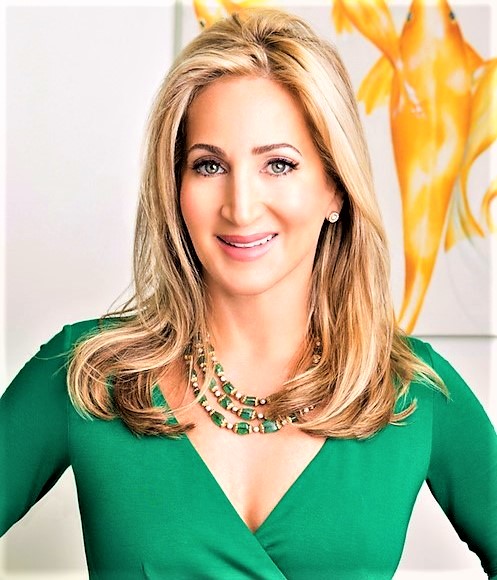Ah! It’s that time again. Those of us, who rewind our brains back to the beginning of our senior year of high school, remember the tensions we felt, as we prepared for that next journey in our life: college, university, vocational school, and so forth! Getting transcripts, letters of recommendations, application essays, applying for scholarships, competing for the position of valedictorian, reviewing all of the extra-curricular activities from our 1st year, and. . . Sigh. Whew! That was a lot to take down in one go. Interesting enough, that is not even the full list. Just imagine the run around many of us went through. Counselors were super busy, sometimes overwhelmed, and then we had to balance all of that with getting ready for prom. Geesh! If only that moment could have been a little easier. Well, as we learned from our teachers and advisors, life isn’t easy. True. It isn’t “easy,” but it can be more manageable. Manageable with comfort to join the ride.
Walking into a world that does just that, and we are introduced to a space that specializes in the comfort of college applications. Yes, applying with. . .ease. Bringing some section of easiness to the University and college application process. A nature-friendly platform, which welcomes high school students and parents into a paradise of. . . getting into college. A comfortable way of experiencing nourishing work of the college-entrance process. A paradise of support, mentoring, tutoring, and locating the right financial. Thereby, making the college and university experience less of a torture chamber of panic and worry. How do I get into college/university? How do I pay for college/university? The two main questions of college/university-bound high school students, and their parents. Having an organization or business, that can answer both questions is a blessing. Having an organization or business, which can fulfill the completion, and implement the work, behind both questions, is. . .heaven. One of the leaders, creating this Earthly heaven is CEO and Founder of IvyWise. . .
Dr. Katherine Cohen. . .
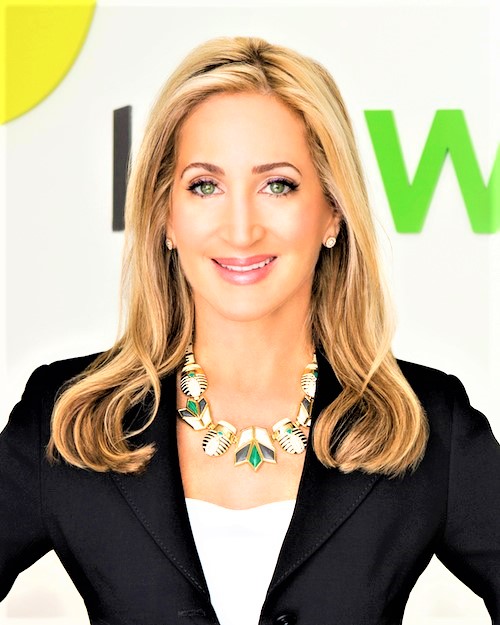
Lauren K. Clark: The name of your company, IvyWise, is a great indicator that, when high school students enter into your spacing, the stresses of looking for a college or university, best suitable for them, will be released. What stories and journey did you go through, to come up with the very name, itself?
Dr. Katherine Cohen: Although I started IvyWise as a sole contractor, I knew from Day 1 that I wanted to create something much bigger than myself. I envisioned creating a consultancy where students around the world could access a team of experts that would guide them through every component of the admissions process, including test preparation, school research, essay writing, and more. Consequently, instead of naming my company after myself (which was what most educational consultants at the time were doing) I decided to choose a name that captured the team-based approach and commitment to excellence that I envisioned. The name IvyWise highlights the expertise that every member of my team brings to the table; our admissions counselors have over 200 years of combined experience working at some of the top colleges in the US, as well as a wide variety of smaller liberal arts schools and top research universities, including Ivy League institutions such as Yale and Princeton.
Lauren K. Clark: Designs and the interior aesthetics of a space can determine the energy and aura of a company or business. How did you plan out the interior design of IvyWise, in order to give it a natural (and environmental-friendly) comfort for students?
Dr. Katherine Cohen: For office design, we wanted something bright and modern that would appeal to students’ aesthetics but also present a professional and polished look. Our office is open, bright, and white to encourage productivity; and to bring a sense of calm so that students aren’t distracted by too much clutter. Our aesthetic is hinted throughout the office, in art, and other subtle design choices-like our leaf logo incorporated in different design elements. But, overall, the space was designed to be fresh, clean, and calming; so that when families come here, they feel at ease, and that they are in good hands.

Lauren K. Clark: As a counselor, what have you noticed about high school students, and the frustrations many struggle with, in applying for college and financial aid?
Dr. Katherine Cohen: The college application process can feel overwhelming for families, especially those who don’t do adequate research beforehand. One of the biggest mistakes many families make is waiting until junior year to really start thinking seriously about college. Admissions officers look at all four years of high school when reviewing applications, so it is important to make every moment count. Additionally, students who begin thinking about the college application process early can avoid a lot of the stress that comes with working down to the wire. Instead of waiting until junior year, I advise families to begin the search process in ninth grade, if not before. There are over 3,000 four-year colleges in the US alone, and identifying the schools that are true, best-fits for a specific student takes time. Students need to give themselves the time they need to go on college tours; research different institutions; start to envision themselves on campus; and, then in turn, begin to pinpoint which institutions really align with their unique needs and goals. Similarly, it’s best to get a jump start on the financial aid process by filling out the FAFSA as soon as possible; and having a discussion, as a family, about what kinds of costs you can afford, and how your student will be expected to contribute.
Lauren K. Clark: In addition to your own, educational background, how would you describe how your unique, travel experiences (exploration with nature and wildlife) have assisted you in bringing gentility, care, and compassion to students and parents when coming for IvyWise services?
Dr. Katherine Cohen: Traveling is a big passion of mine and something that I do quite frequently because I work with students all over the world. I really enjoy learning about other cultures and always pencil in time to explore whatever region I am visiting. I am also bilingual and emphasize how valuable this skill can be whenever I am working with students. One of the most exciting components of higher education in the United States is all of the opportunities students have to learn from a diverse set of peers, expand their horizons, and oftentimes explore different regions of the world through study abroad opportunities. Building an international brand has always been a priority for me. I am proud to say that IvyWise has worked with students in over 40 countries, and we also have members of our staff who reside all over the world. Having this global perspective is important because it optimizes learning potential and helps students prepare for experiences in higher education and the workforce.
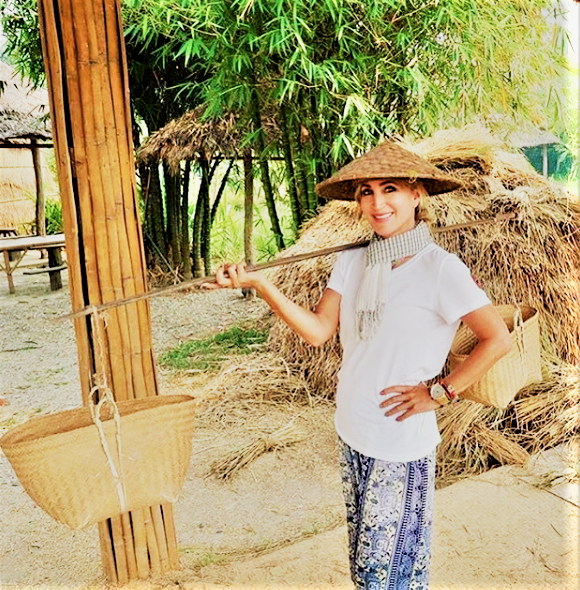

Lauren K. Clark: Based on your expertise, do you feel that education in the US, in general, is presented with a high level of rigidity, that it’s very foundation causes great extremes of stress and pressure for those seeking to enter higher education?
Dr. Katherine Cohen: Many students do experience stress and anxiety regarding higher education, but I think the root of a lot of these sentiments comes from families just focusing on name brand schools. When they take a step back, students will see that there are actually a lot of different educational options out there, that are flexible and unique. From small liberal arts colleges to large research universities, there’s something out there for everyone. This realization can take a lot of the pressure off of students because every single applicant is truly capable of enrolling at a best-fit college, where they can be successful and happy. It’s just a matter of helping to guide students through this process to find their best-fit schools and educational paths. Every student is different and the seemingly endless choices can be overwhelming. So while there is a lot of freedom, all those options can be paralyzing in a way and force them to focus on just a handful of schools-whose names they’re familiar with. We aim to take the rigidity out of the process.
Lauren K. Clark: Outside of yellow and green, what colors do you feel adequately describes the counseling styles and methods of IvyWise? Name three.
We use various shades of blue to convey the ability to calm and remove stress. White is another color we frequently use in order to convey a clean, polished aura; since we want families to feel that they are supported and getting a really personalized, polished, and professional experience. Orange is also one of the colors we frequently use, but sparingly since it is a warm color, that doesn’t have quite the calming attributes that the cooler colors do. In that instance we use it as more of a call to action to highlight things that students should take action on, in order to move forward in their journey.
Lauren K. Clark: Do you find that the concerns of the student differs from that of their parents when applying for college and university? How so? What are the generational differences?
Dr. Katherine Cohen: This really depends on the specific family, but there are some generational trends and differences. Frequently, parents go into the college admissions process with a lot of expectations surrounding what kinds of schools their student will attend, such as Ivy League colleges or maybe their own alma mater. One of my tasks as a college admissions counselor is to manage these expectations and work with the entire family to create a balanced college list, that really prioritizes a student’s unique interests and passions. Many colleges are becoming increasingly competitive, so it is really important for all students to create a list of schools that they are excited about that range in selectivity; in order to ensure they are able to enroll in an institution that is truly a best fit for them. Additionally, parents frequently expect their students to enroll directly in a four-year college after high school graduation, while students are more open to alternatives such as gap years, community college, and online courses. While enrolling in a four-year college directly from high school is a great decision for many students, it’s important to explore every option available and devise an education strategy that is really tailored to the individual.
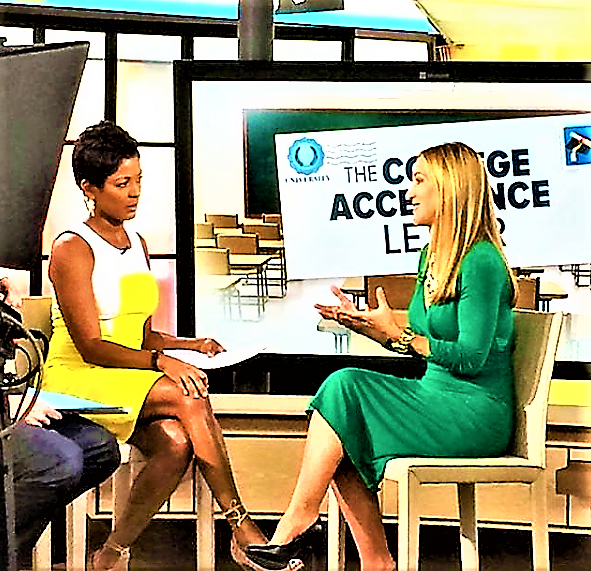

Lauren K. Clark: Looking back in your own high school experiences, what compelled you to enter into educational counseling? Are there particular counseling styles you had in high school, that you wish were more prevalent in current high schools across the country? Do you see educational counseling styles, that you wish were available during your high school years?
Dr. Katherine Cohen: I began tutoring peers in high school and really enjoyed working one-on-one with students and watching them learn how to approach different types of projects and assignments with my guidance. The ability to play an active role in helping make someone else’s long-term goals and ambitions turn into a reality was really exciting for me; and it was something I knew I wanted to continue in some capacity. When I arrived at Yale as a graduate student, and began reviewing applications while working in their admissions office, all of the pieces came together for me. I saw so many candidates making the same mistakes on their applications; and I wanted to create a service that could help students learn how to present their best selves to an admissions committee. I think services like IvyWise can be really valuable for students, particularly because the availability of in-school counseling options can be quite limited. According to the American School Counselor Association, the average student to counselor ratio is 482:1, which is nearly double what the organization recommends. College admissions is not a one-size-fits-all process and it’s really important for students to receive information and guidance, that is tailored to their own academic profile, long-term career ambitions, and personal preferences. Some high schools do provide students with opportunities to meet one-on-one with their college counselor, but frequently these meetings do not occur until junior year. In an ideal world, students will be able to receive personalized information about the admissions process from freshmen year of high school, so they can begin preparing for applications, well in advanced and avoid a lot of the stress, that comes with having to compile everything in the last minute.
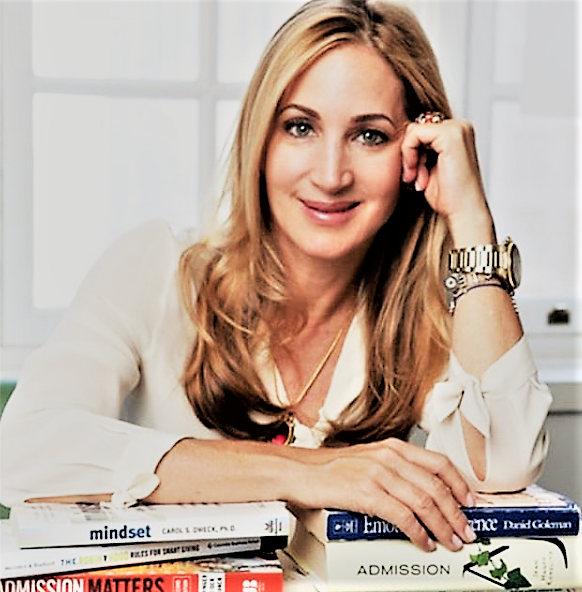
Lauren K. Clark: In your observations, what would be the top 3 issues that students deal with when coming to IvyWise for assistance in financial aid and college/university preparation?
Dr. Katherine Cohen: Every student we work with is really unique, but there are some questions and concerns that come about fairly frequently. For example, many students are unclear about what it takes to stand out and what they can do to wow an admissions office. My biggest advice for these applicants is to really focus in on your passions and reflect on what matters most to you. Admissions officers are looking to build a diverse class of experts, or students who have specialized in a handful of pursuits. Throughout high school, students should commit to learning as much as possible about a couple of fields that they are truly interested in; versus padding their resume with a bunch of different clubs and extracurricular activities.
Another concern that many families face is worrying about standardized testing, which is why we have built a team of tutors who have scored in the 95th percentile, or above in the exams to which they teach. Although an increasing number of colleges are moving towards test optional admissions policies, SAT or ACT scores are still a major admissions factor at many institutions, including every Ivy League. Many students struggle with test-related anxiety and our tutors really excel in helping ease this stress. Much like admissions counseling, IvyWise tutors work one-on-one with students all over the world, and help devise effective test taking strategies that are tailored to specific academic strengths and challenges.
A third issue that many families are concerned with is getting into a name brand college. While Ivy League institutions or similarly prestigious universities may be best-fit options for some students, it’s so important to expand your horizons and weigh every option during the college application process. Frequently, students may begin the process with their heart set on one school, but come to realize another institution better aligns with their goals and preferences, after working with a counselor.
Lauren K. Clark: Do you feel that there is an unwritten fear factor that parents and students have in applying for higher education? How does IvyWise work to generate an energy of euphoria when entering into the IvyWise garden?
Dr. Katherine Cohen: Many families certainly feel overwhelmed by the college admissions process or uncertain about what it takes to stand out. The recent college admissions scandal is a prominent example of the kind of panic some parents feel about higher education. My team works to make the process empowering, as opposed to overwhelming, by sharing our expertise with the families we work with and devising an admissions strategy tailored to a specific student. In addition to working one-on-one with the counselor of their choice, IvyWise students have the opportunity to receive feedback on their applications from our entire team during weekly Roundtable Reviews; when all of our counselors come together and essentially recreate the application review process, utilized by admissions offices all over the country. Families also work with a client relations manager, who serves as a liaison between students and their counselor. This team-based approach ensures that students and their parents are supported throughout the admissions process, and even after an applicant receives their college acceptances.
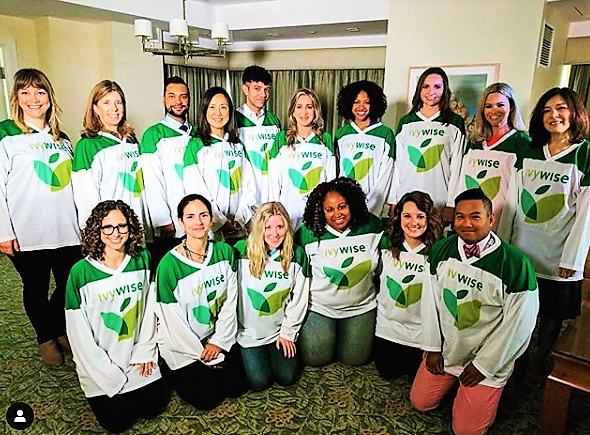
In addition to being experts on the admissions side, all of our counselors are really experienced with working with students and build really meaningful relationships with those that they work with. They have a passion for mentoring and guiding their students; and know how to approach different types of students, such as self-starters versus those who need a little more support. Our counselors aim to make the process as stress-free as possible, and offer support and guidance through every step of the process.
Lauren K. Clark: How do you see highlights of your own personality in the IvyWise spacing? How is such reflective in how you nurture your own mental psyche and emotional well-being?
Dr. Katherine Cohen: Creating a serene space that students really enjoy learning in has always been a priority for me. Green lighting spells out our company motto, “Aspire, Apply, Achieve”, in the reception area as a motivator and reminder to all of our organization’s mission. Each room in the office includes art that I am personally connected to. I choose pieces that are cohesive and contribute to this sense of calm focus, that our entire team strives to create for our students. Cooling hues such as blues and grays add to this idea of serenity and helps to foster a relaxing environment. Since reducing the stress around the admissions process is a big part of my team’s mission, I strive to make sure our office environment reflects this.

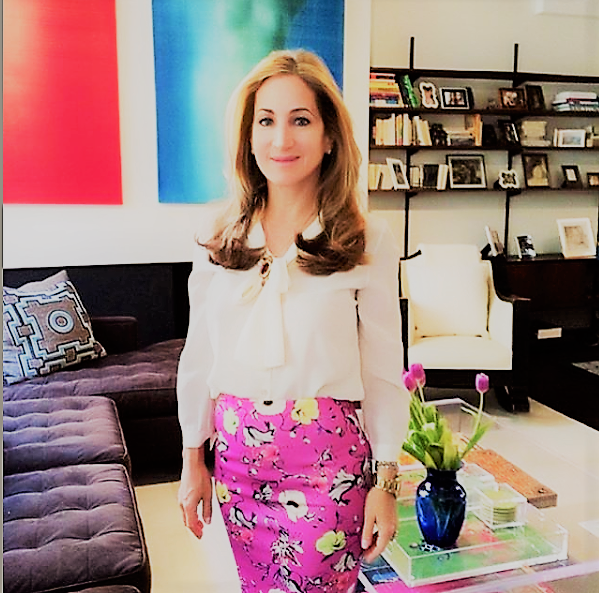

Lauren K. Clark: What colors adequately describe your unique sense of inner peace in your field?
Dr. Katherine Cohen: Blues and greens are a really calming presence, both in my workspace and life. The goal of my organization is to make this process as easy and stress-free for families as possible and cool colors help convey that sense of calm and focus.

Now, that you have gone through that elegant flow of moving through the college and university process. . .just breathe! Umm. It feels much better, doesn’t it? A more Earthly feel, more soothing feel. . .a more greenish feeling. There is pressure when moving through unknown territory, but it doesn’t have to be tense. There is pressures when flowing through entrance of a higher terrain, but it doesn’t have to be agonizing. Through Ivywise, education, and acquiring an education becomes nourishing. Each step, and each process, is akin to the planting of a seed. Continuing to plant more seeds, watering them, feeding them, and keeping to all the tasks of watching them grow. The labor can be tedious. Like any gardener, the fruition of healthy crops is going to take work. Yet, with the likes of Dr. Katherine Cohen, and her IvyWise team, there is a natural elegance and beauty of doing that. Now, applying for college, university, or other institutions, is more like growing one’s own educational garden. Mapping out the different sections to plant the seeds, store the vegetation, and selecting which crops one wants to use for a meal.
Life is not easy. However, there can be comforts designed for the pressures ahead. It is one of those instances of finding a way to ease the tension, while moving with a support system. If you work in the way of Earth’s natural elements, the work becomes less strenuous. Fascinating? Don’t you think? Growing gardens is one of those simple metaphors, that just makes sense. Naturally. No complexities. Of course you have to do your share of the work. Yet, with preparation, diligence, a supportive network, and working well, the fruits of educational tending are sure to produce a bountiful harvest.
For more information to connect with Dr. Katherine Cohen and IvyWise, you can go to the following link: https://www.ivywise.com/about-ivywise/dr-katherine-cohen/, Twitter: @IvyWise @drkatcohen Instagram: @followivywise @drkatcohen Facebook: https://www.facebook.com/ivywise/


